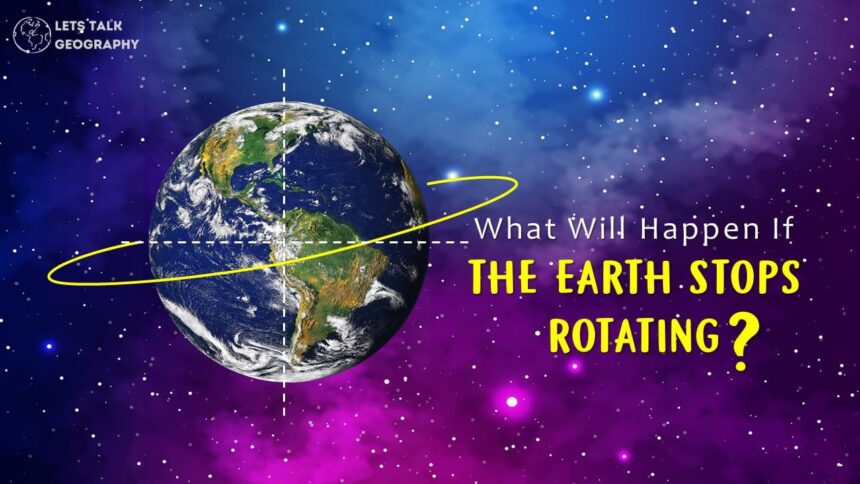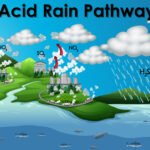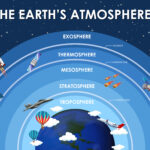What will happen if the Earth stops rotating? If Earth suddenly stopped rotating, the consequences would be catastrophic. Buildings would fly eastward, temperatures would become extreme, and weather patterns would be devastated. Humans and most lifeforms might not survive this apocalyptic scenario.
The method of research moving around the concept of Earth’s rotation is quite significant as it enables the proper understanding of the working procedures in general. The mentioned topic has been very briefly discussed to gain a clear insight into the area of concern.
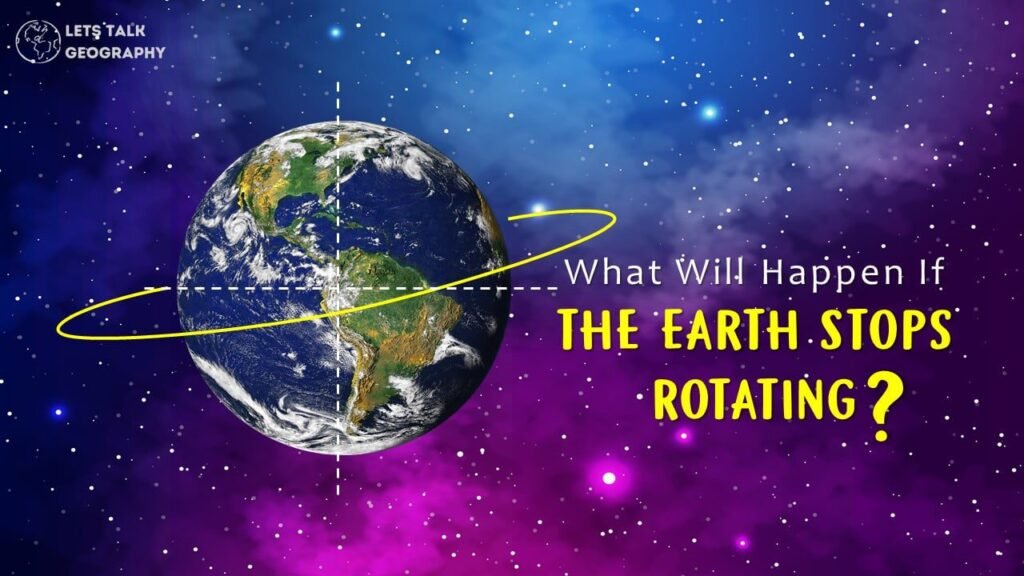
Playing an essential role in living on the earth, the manner of working of the latter has always been an area of concern and thought for all of us. So here comes the entire discussion with a bang!
●⫸ What is the rotation of the Earth?
The rotation of the Earth mainly suggests that It is spinning around its axis in the eastern zone in a prograde motion. The rotation of the Earth becomes visible from the North Pole, which is mainly denoted by the term “Geographic North Pole or Terrestrial North Pole.” This pole situates itself in the northern hemisphere, where the planet’s rotation meets the surface of the axis. From this pole, the Earth’s rotation in a counterclockwise manner could be easily understood.
This context further maintains the notion that two varied rotations take place in the entire setup. The first one is that of the earth’s rotation around its axis and the second one is the return to its same course in comparison to the universe.
This notion would enable you to examine the rotational speed of the planet in a single day within 24 hours while keeping the sun in the context and once in 23hr 56 min and 4 seconds with respect to the other planets.
So, did it ever hit you that what lets the earth rotate regularly without any problems? Let’s look at the reason behind the entire system:
● It happens due to the tidal effects that the moon bestows on the Earth.
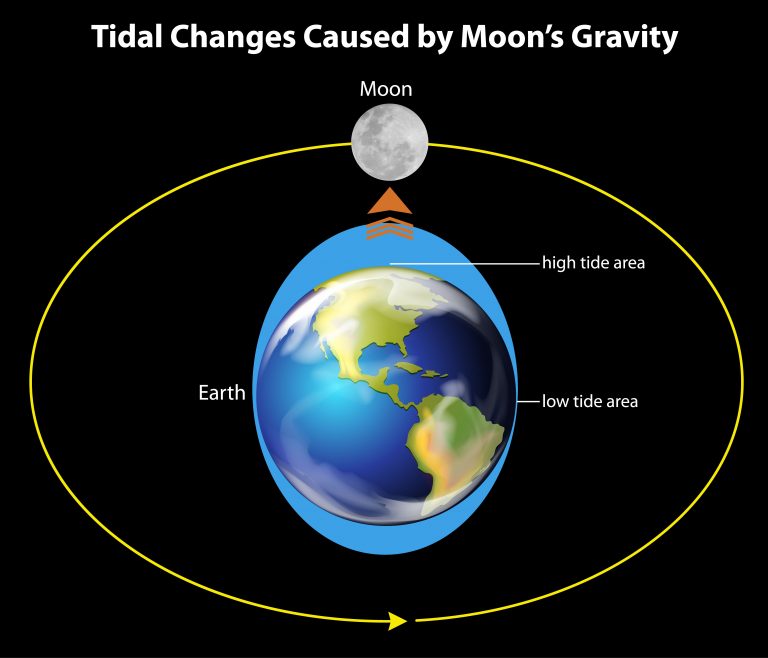
Recent research has led to the development of the notion that the earth had begun to rotate with a great speed after its slow rotation in the former decade about 86, 400 seconds per day. Therefore, the notions will enable you guys to understand the concept of the earth’s rotation and the various reasons behind it.

Read More:
- What is a Black Hole?
- What is the Order of the Planets in the Solar System?
- 3 Most Important Theories to Explain How the Solar System Formed?
- Rare Earth Elements (REE) | Facts, Uses, and Name of all 17 Rare Earth Elements
- Solar Mission of NASA – Entering the Solar Atmosphere
- Solar Storm in Space | Reasons, Measurement, Effects and the Last Solar Storm Hit
●⫸ Variation of the rotational speed of the Earth:
The above-mentioned area has quite well specified the role of earth in its rotational aspect. The concept of rotation is quite significant as it enables the proper working of the entire system in general. This concept will further bring you to specify another significant area that would make you ponder that does the rotational speed of the earth varies to a great extent?
Or even if it does, why does it happen?
Here you might get a solution to your problem …
The earth has quite recently increased its speed of rotation though earlier it was a slow one with a speed of about 86,400 seconds per day. But there are reasons behind the varied speed of the earth’s rotation which are those of-
- Due to the movement of the core
- Due to the varied transformations in the patterns of the ocean and the weather.
Other than this the sudden increase in the rotational speed of the earth has enabled the scientists to ponder on the aspect of the negative leap second. Only by avoiding a leap second would enable them to control the rotational speed of the earth. Therefore these serve as important notions for the said topic at large.
●⫸ What is the impact of the rotation of the Earth?
Without the earth’s rotation, the entire system would face severe issues in the manner of production. As we all know that the rotation of the earth is very significant as it enables the establishment of proper functioning in general.
So in this regard, the major question that ponders within us is what kind of impact it might lead you to focus on due to the reason. So let’s discuss the impact in this area:
- The rotation on an initial basis enables the formation of day and night.
- A change in the direction of the wind and the ocean currents.
- Due to the environmental issues.
While focusing on the effects based on the wind’s direction the following things must be kept in mind.
- The rotation of the earth enables the wind to not act in a straight line and leads to the development of the Coriolis force, which enables the wind to deflect towards the right in the hemisphere directed to the north and the left in the southern part.
- The entire process creates several effects in the different spheres, including those of the horse latitudes, doldrums, easterlies and westerlies, and the trade winds in general.
Other than these areas, the effects of cyclones, ocean currents, and gradual day and night changes could be analyzed. Due to these, the cyclones move in an anticlockwise manner in the northern hemisphere and a clockwise motion in the southern hemisphere.
- The ocean currents show considerable effects due to this by the spiraling effect it engages on the entire aspect.
●⫸ What will happen if the Earth stops rotating?
After analyzing through these lines the only question that will come to your mind, is what will happen if the earth stops rotating. If such a thing happens then the entire working system would face graver issues like those of discrepancy in the climatic conditions, the lowering of the water level of the ocean, and other issues as well.
●⫸ Conclusion:
Therefore guys the time’s up and we need to wind up our discussion on this aspect which mainly focused on the importance of the earth’s rotation and the various effects it delivers on the entire issue.
The rotation plays a vital role in the development of the entire aspect as it enables the prop functioning of the earth and course brings better effects in the case. Including the various areas related to the wind, ocean currents, occurring during the day and night will further allow the entire situation to work effectively.


